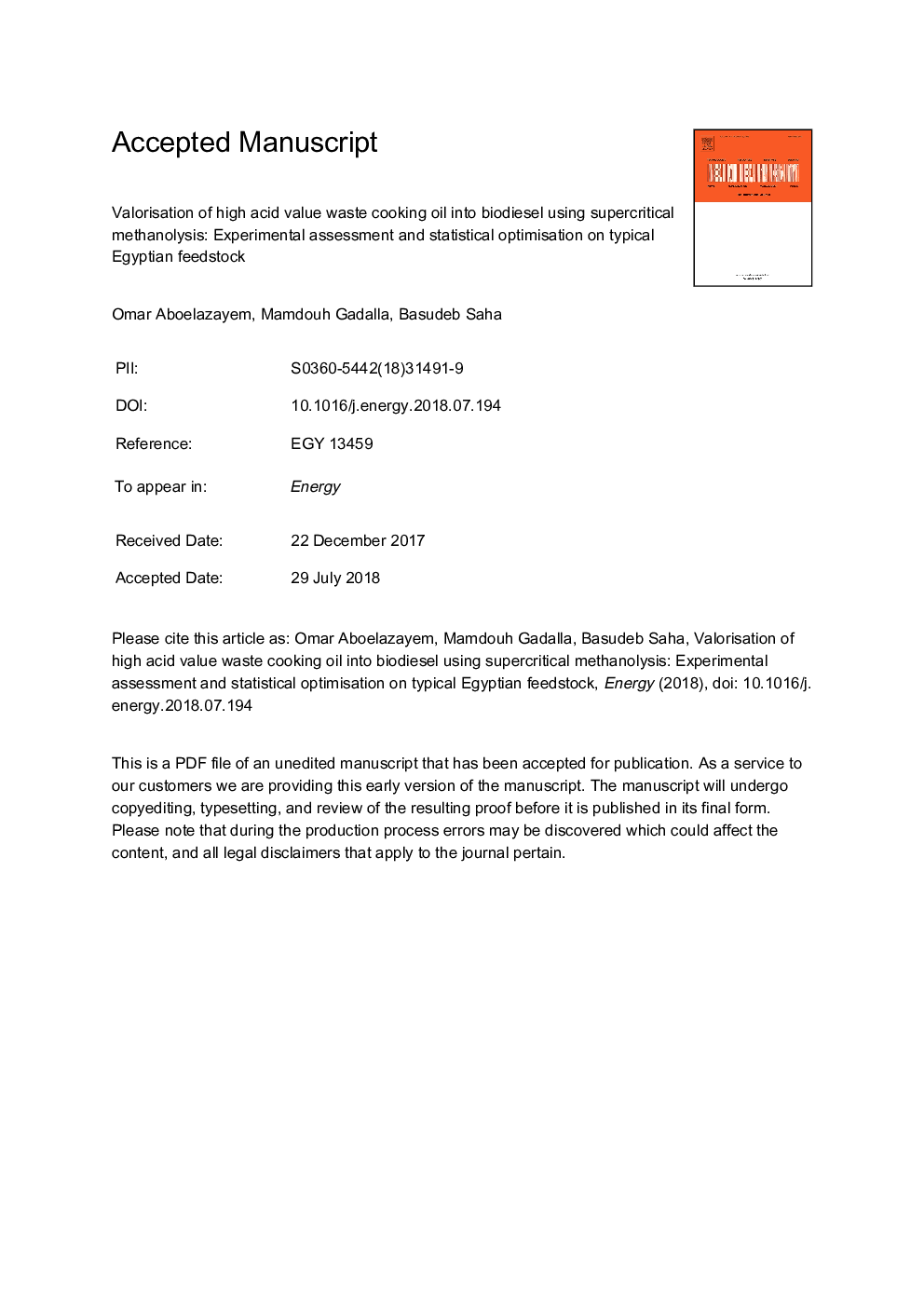| Article ID | Journal | Published Year | Pages | File Type |
|---|---|---|---|---|
| 8070819 | Energy | 2018 | 31 Pages |
Abstract
In this study, valorisation of high acid value waste cooking oil into biodiesel has been investigated. Non-catalytic transesterification using supercritical methanol has been used for biodiesel production. Four controllable independent process variables have been considered for analysis including methanol to oil (M:O) molar ratio, temperature, pressure and time. Uncommon effects of process variables on the reaction responses, e.g. biodiesel and glycerol yields, have been observed and extensively discussed. Response surface methodology (RSM) via Central Composite Design (CCD) has been used to analyse the effect of the process variables and their interactions on the reaction responses. A quadratic model for each response has been developed representing the interrelationships between process variables and responses. Analysis of Variance (ANOVA) has been used to verify the significance effect of each process variable and their interactions on reaction responses. Optimal reaction conditions have been predicted using RSM for 98% and 2.05% of biodiesel and glycerol yields, respectively at 25:1â¯M:O molar ratio, 265â¯Â°C temperature, 110â¯bar pressure and 20â¯min reaction time. The predicted optimal conditions have been validated experimentally resulting in 98.82% biodiesel yield, representing 0.83% relative error. The quality of the produced biodiesel showed excellent agreement with the European biodiesel standard (EN14214).
Keywords
Related Topics
Physical Sciences and Engineering
Energy
Energy (General)
Authors
Omar Aboelazayem, Mamdouh Gadalla, Basudeb Saha,
